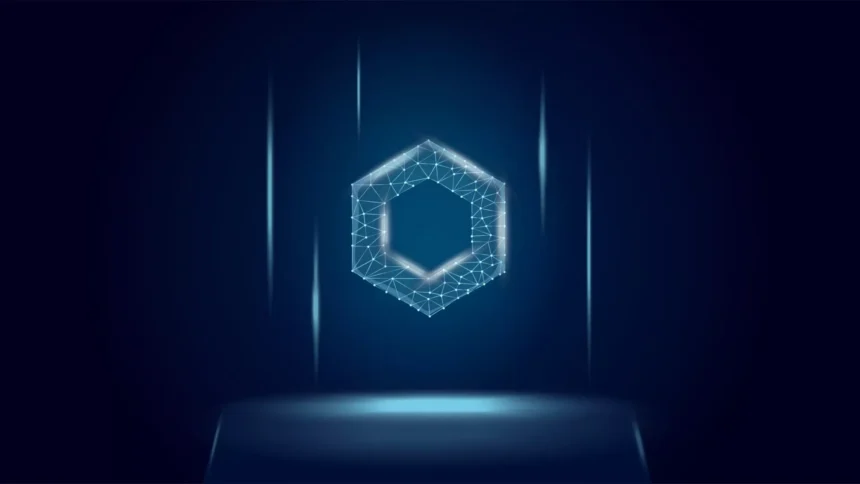
- Brazil’s Central Bank partners with Chainlink, Microsoft, Banco Inter, and 7COMm for Drex CBDC pilot, utilizing blockchain technology to revolutionize supply chain and trade finance processes.
- Chainlink’s Cross-Chain Interoperability Protocol has processed over $16 trillion in transactions and will enable secure cross-border functionality between Brazil’s Drex platform and foreign central banks.
Brazil’s Central Bank (BCB) has announced a groundbreaking collaboration with Banco Inter, Microsoft Brazil, 7COMm, and Chainlink Labs in the second phase of its digital currency pilot, known as Drex. The initiative aims to revolutionize supply chain management and trade finance processes by leveraging blockchain technology and Chainlink’s Cross-Chain Interoperability Protocol (CCIP).
Brazil’s central bank (@BancoCentralBR) has selected the #Chainlink standard for its Drex project to unlock secure settlement across:
Borders
Blockchains
Currencies
Why Chainlink underpins the future of global finance and trade
https://t.co/eMQZkOajfb pic.twitter.com/RtHPOwOz6A
— Chainlink (@chainlink) November 19, 2024
The pilot project tokenizes electronic bills of lading (eBoLs) on the blockchain in an effort to have supply chain data self-execute payment to exporters at every stage of shipment. In such a way, this new method is trying to show how block-chain-based trade finance opens mechanisms like Delivery versus Payment (DvP) and Payment versus Payment (PvP) to increase efficiency and security in international trade.
Chainlink’s CCIP plays a pivotal role in enabling interoperability between Brazil’s Drex platform and foreign central banks. As the industry-standard decentralized computing platform, Chainlink has facilitated over $16 trillion in transaction value through its comprehensive set of Oracle services.
CCIP Powers Cross-Border Blockchain Transactions in Brazil
Angela Walker, Global Head of Banking and Capital Markets at Chainlink Labs emphasized the significance of CCIP in the project’s success.
“Chainlink CCIP is essential to enabling secure cross-border, cross-currency, and cross-chain transactions and will help showcase what tokenized assets can do at scale for this key CBDC use case in Brazil,” she stated.
Microsoft Brazil joins the initiative by providing cloud services essential for the project’s infrastructure. Banco Inter, the country’s first fully digital bank, leads the implementation efforts on the Drex platform within Brazil.
Bruno Grossi, Head of Emerging Technologies at Banco Inter, is optimistic about the deal. Bruno said that they saw the collaboration in this project with such technology leaders as Microsoft and Chainlink Labs as a transformative opportunity for broadening market exposure and enhancing the health of the Brazilian market.
Digital solutions provider 7COMm is contributing to the project’s technical implementation. Sergio Yamani, the company’s Chief Innovation and New Business Development Officer, highlighted the potential impact on Brazil’s economy.
The advent of CBDCs, the development of blockchain interoperability protocols such as CCIP, and the use of CBDCs for cross-border payments enable a new generation of blockchain trade finance solutions,
Microsoft’s participation underlines its long-term commitment to blockchain innovation and active participation in Drex. João Aragão, Microsoft’s innovation specialist for financial services, stated that the company is pleased to be working with the Central Bank of Brazil, Banco Inter, 7COMm, and Chainlink Labs on Brazil’s Drex digital currency.
Drex Pilot Advances DeFi and Trade Innovations
By combining system security, programmability, and privacy into its design, the pilot Drex addresses the “trilemma” of decentralization. This also includes tokenizing digital assets and increasing the number of decentralized liquidity pools for government securities. These activities pave the way for potential decentralized financial (DeFi) use cases using the OTP global and regulatory technological architecture.
Blockchain technology guarantees supply chain management and improved platform and currency interoperability in the second phase. Once tokenization and automated protocols are adopted, Drex will change how Brazilian businesses operate in trade finance and global commerce.
The Drex CBDC project, expected to last until 2025, develops the potential of digital assets, such as their use in foreign trade and the liquidity of government bonds present in the issue. As Drex develops, so do projects like Ripple’s alliance with Mercado Bitcoin, which add to Brazil’s options to access cross-border crypto payments, a testimony of the country’s increasing status in digital finance.






